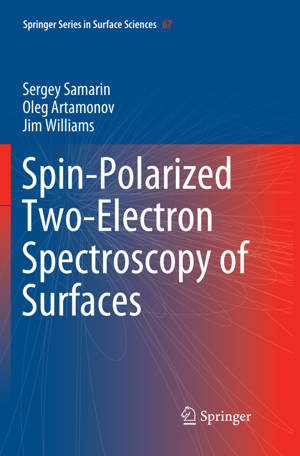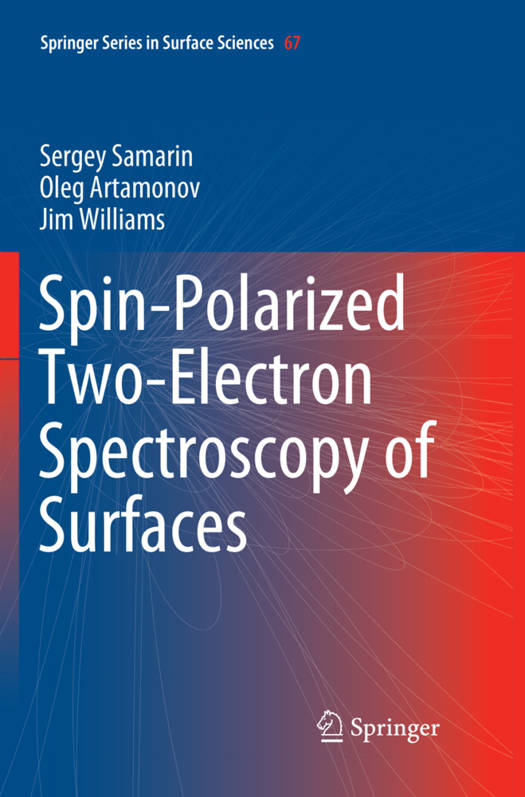
- Retrait gratuit dans votre magasin Club
- 7.000.000 titres dans notre catalogue
- Payer en toute sécurité
- Toujours un magasin près de chez vous
- Retrait gratuit dans votre magasin Club
- 7.000.0000 titres dans notre catalogue
- Payer en toute sécurité
- Toujours un magasin près de chez vous
Description
This book presents developments of techniques for detection and analysis of two electrons resulting from the interaction of a single incident electron with a solid surface. Spin dependence in scattering of spin-polarized electrons from magnetic and non-magnetic surfaces is governed by exchange and spin-orbit effects. The effects of spin and angular electron momentum are shown through symmetry of experimental geometries: (i) normal and off normal electron incidence on a crystal surface, (ii) spin polarization directions within mirror planes of the surface, and (iii) rotation and interchange of detectors with respect to the surface normal. Symmetry considerations establish relationships between the spin asymmetry of two-electron distributions and the spin asymmetry of Spectral Density Function of the sample, hence providing information on the spin-dependent sample electronic structure. Detailed energy and angular distributions of electron pairs carry information on the electron-electron interaction and electron correlation inside the solid. The "exchange - correlation hole" associated with Coulomb and exchange electron correlation in solids can be visualized using spin-polarized two-electron spectroscopy. Also spin entanglement of electron pairs can be probed. A description of correlated electron pairs generation from surfaces using other types of incident particles, such as photons, ions, positrons is also presented.
Spécifications
Parties prenantes
- Auteur(s) :
- Editeur:
Contenu
- Nombre de pages :
- 232
- Langue:
- Anglais
- Collection :
- Tome:
- n° 67
Caractéristiques
- EAN:
- 9783030131395
- Date de parution :
- 10-12-19
- Format:
- Livre broché
- Format numérique:
- Trade paperback (VS)
- Dimensions :
- 156 mm x 234 mm
- Poids :
- 349 g

Les avis
Nous publions uniquement les avis qui respectent les conditions requises. Consultez nos conditions pour les avis.






